I get asked this question a lot and there’s not really an easy answer, in that, if you are asking it, then there is probably only one answer. You go to the bank and see if you can borrow the money to acquire a business.
Most newer entrepreneurs don’t want to hear that, they want a magic answer, they believe there’s a magic money tree that you can go to when you want to make an acquisitions, some secret hack that gets them that first business. Sometimes with no money down. Please!
There isn’t a way you can hack an acquisition. It’s likely that most smaller businesses are making acquisitions using a bit of their own cash and a loan. Maybe with some mezzanine finance in there.
The secret sauce when buying a business
However, the secret sauce is how deals are structured, once you understand this you can work out how to put together a deal and then the smaller amount of finance that is involved for the upfront payment. Very few businesses are actually bought outright with a pot of cash from one source.
Our core businesses is M&A, our clients on the buy side come to us with money already, either they have had a few years of good profit and they’re looking to reinvest, they have access to finance or have sold to private equity/IPOd and have investor money they’re going to use for growth through a buy and build strategy.
Where can you find acquisition finance
Smaller clients sometimes want to know how we can direct them to special financiers and while there are some finance companies that specialise in acquisition finance, they will still need a business plan, some of your own cash in the deal and perhaps won’t even be able to get all the money that you need.
So places to get acquisition finance are:-
- A bank
- A bank
- A bank
- Mezzanine finance
- A special acquisitions financier
Deal structure to make financing the deal a breeze
First though, let’s look at deal structuring, so you can understand a little more about how much you actually need to buy a decent business.
Let’s just say the business we want to buy is worth one million pounds, the owner runs the business and is looking to sell and get out. However, they are the principal owner, the CEO and closes most of the deals. The business is essentially them.
Now, any buyer looking at this business understands that if they buy the business and this person is no longer in it, then there will be value lost immediately, this is why acquisitions are generally structured with an earn out.
The earn out ensures the buyer will get the business handed over in one piece. The pivotal person in the business stays in the business for a fairly long time frame, sometimes up to five years and steps back from the business extremely slowly, while the new owner takes over the relationships with staff and clients, or hires in the right management team to do it.
How the deal is structured
To encourage the seller to work in the business and play nice a deal is structured so that they get the majority of the payment up front and then during the earn out, to keep the business on course, they take the rest of payments in lump sums over the duration of the earn out.
So the deal will be something like:-
- 50% up front
- 16.7% end of year 1
- 16.7% end of year 2
- 16.6% end of year 3
The earn out will have built in targets for the seller to hit, otherwise they miss their payout or it is reduced.
How much finance do we actually need to make an acquisition?
So let’s look at the finance needed for this deal, we now only need £500k at closing. If the buyer has £150k in cash to put towards the deal, the bank will probably provide the rest of the cash needed, particularly if the business you’re buying is doing the revenue required to pay the loan down.
If the buyer has less cash, say £75k, it may be that the bank would still offer £350k and the rest of the deal could be funded with mezzanine finance.
Other types of finance
Mezzanine finance is a loan over a shorter period of time and often within business deals, the loan will be secured against equity in the business if it isn’t paid off in time. There are plenty of sharks that sniff around these types of loans. Be careful to only take the money from a reputable firm, or if you must go to a shark, make sure your plan to pay it back in time is rock solid.
There are also some other types of finance, like cash flow loans and invoice factoring which might help you get to the up front payment that you need and get you over the line on the deal. Sometimes the seller will help you to get these organised depending how motivated he is.
A typical M&A deal
So this is a typical deal, but I will caveat that with the fact that there isn’t a typical deal out there. Deals can bend all over the place to fit both sides of the table’s needs.
It can also be common particularly in asset businesses, IP rich deals like SaaS or service companies where the owner does not perform in the day to day, that the seller will want to sell the whole business and step back from the business on day one.
There can still be seller finance in this type of deal, where although the former owner is no longer a shareholder, they leave some of their owed cash in the company and take this out over time. This looks and works like a loan in most cases, albeit a private one from the seller. Again, these are common where the seller is motivated to get the deal done.
These are also deals at the lower end of the SME level, higher up the food chain the money is typically coming from investors of some type or other, either a family office, private equity, venture capital or sometimes even private investors and angels will invest money for acquisitions. So if you are a larger business with lots of profit and you are still asking this question, then as well as banks you should be looking at these other types of finance already.
Acquiring a larger business, is it possible?
So, the point is, it is possible to acquire a business worth £1m with very little of your own money. In practice it can be difficult to find a seller who is willing to sell to a buyer whose business is smaller than theirs, or if they don’t have finance in place already or very quickly after negotiations begin.
In agencies, where I mostly operate, there are a lot of egos at play amongst agency owners and very few sellers will even entertain being bought out by a smaller agency.
I don’t really know why this is apart from there being fragile egos involved, as often a smaller buyer is far more motivated to get the deal closed. Whereas a larger buyer will often have 5-10 deals in discussion and while they may have the money already, they are more likely to kill a deal for seemingly no reason, even after making an offer.
Deals are a numbers game
The key to getting these deals done is to treat the process as a numbers game and get yourself in front of as many potential sellers as possible so you get a good deal on your own terms. When we work on the buy side our role is to get you in front of as many sellers as possible in as short a time as possible.
The main issue we have when working with buyers is having an unresponsive CEO to work with, while we may send a number of potential deals, the buyer is slow to respond or gives unclear feedback. In this situation it can be difficult to get a good result for a client.
The best scenario for everyone is for you as the buyer have a strategy in place at the start with what kind of company you want to acquire and what the parameters look like for a good result, this will include things like: types of clients, number of employees, number of contracts, profit margins or turnover, whether the business is growing or in trouble, etc. It’s then best to have several of your offers on several tables and get into the financials of a business, test the management for how they engage under stress and make sure you understand where the money is coming from and who the earners are within the company.
Finance for acquisitions in summary
This allows you to make informed offers, with a sound earn out structure underlying the deal, which keeps the seller motivated and your up front payment as low as possible. That way you structure the deal with as little of your own money in it as possible.
Hopefully that gives you some idea of how to finance your first deal, go and see your bank manager and make him a friend. Quite often they would be more than happy to provide you with the level of finance you need to acquire a decent size business.
P.S.
One last thing, don’t treat the sellers like you are the king dong and you are doing them a favour, you have to sell your vision to them of where you are taking their business. Ultimately, it’s their baby they are giving away and they want to know it’s going to a good home. Businesses aren’t just for Christmas!



